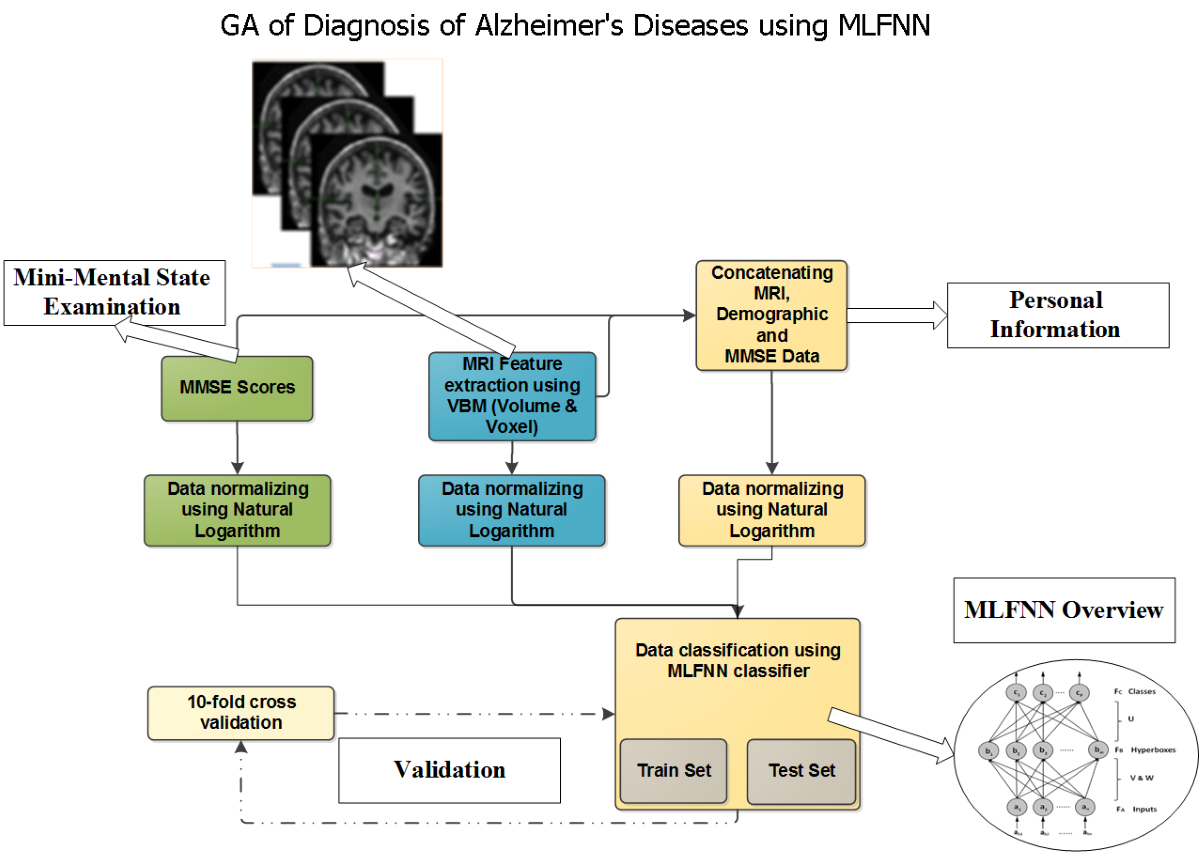Timely diagnosis of Alzheimer's diseases(AD) is crucial to obtain more practical treatments. In this paper, a novel approach Based on Multi-Level Fuzzy Neural Networks (MLFNN) for early detection of AD is proposed. The focus of study was on the problem of diagnosing AD and MCI patients from healthy people using MLFNN and selecting the best feature(s) and most compatible classification algorithm. In this way, we achieve an excellent performance using only a single feature i.e. MMSE score, by fitting the optimum algorithm to the best area using optimum possible feature(s) namely one feature for a real life problem. It can be said, the proposed method is a discovery that help patients and healthy people get rid of painful and time consuming experiments. Experiments shows the effectiveness of proposed method in current research for diagnosis of AD with one of the highest performance (accuracy rates of 96.6%), ever reported in the literature.

